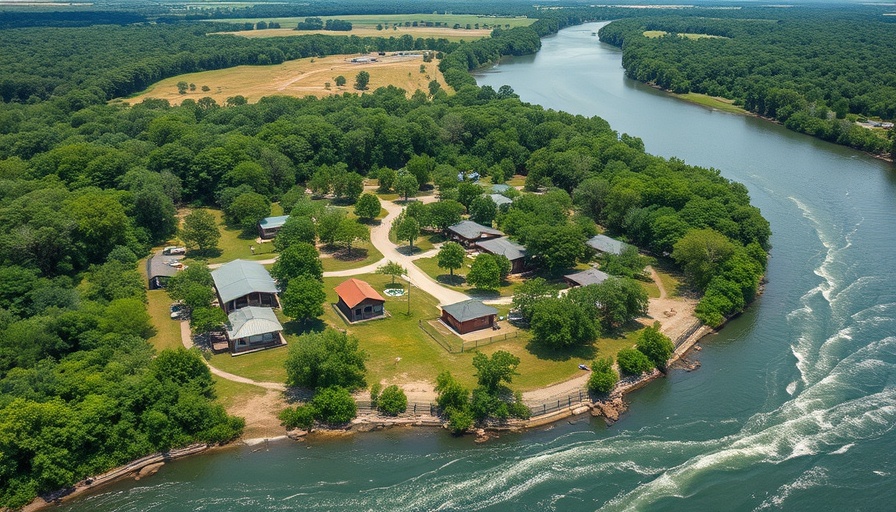
New Protective Measures for Texas Summer Camps
In a bold move aimed at enhancing safety, Texas has rolled out new legislation mandating that summer camps remove cabins from floodplains. This law, prompted by a series of devastating floods that have impacted the state over the past few years, reflects an increased emphasis on protecting both campers and staff from the brutal realities of natural disasters.
Understanding the Necessity Behind the Legislation
Texas has frequently experienced severe weather patterns, with flooding becoming a recurring menace. According to the National Weather Service, Texas ranks among the states most susceptible to flooding due to its diverse geography and unpredictable weather. This legislation is pivotal, as it addresses a significant safety concern for summer camps—a place where children and families should feel secure. The hope is that removing cabins from flood-prone areas could dramatically decrease the risk of tragedies during unexpected weather events.
Broader Impact of Floodplain Legislation
The implications of the new laws extend beyond just summer camps. The legislation serves as a beacon of hope for the community and highlights a broader commitment to disaster preparedness. By prioritizing safety regulations, Texas is setting a precedent for camp establishments across the country, encouraging other states to revisit their own safety protocols regarding flood management.
Local Reactions to the New Laws
Reactions from the local community in Texas have been largely supportive. Many parents express relief, noting that summer camp should be a time of fun and adventure rather than fear. “This will save lives,” one parent stated, emphasizing the importance of taking preventive measures. Summer camp directors, while initially worried about the financial implications of relocating cabins, understand the necessity of this legislation to ensure camper safety.
The Financial Considerations for Camps
While the legislation aims to protect campers, it also poses challenges for camp operators. The financial burden of removing cabins and relocating them to safer areas can be substantial. Many camps are now grappling with the question of funding, as some may need to invest in new infrastructure or renovations to comply with the law. Grants and state funds may become vital resources for camps seeking to adapt without compromising their operations.
Addressing Misconceptions: Safety vs. Adventure
One common misconception about flood safety is that it hinders the adventurous spirit of summer camps. However, this new law contrasts that narrative by showing that safety can coexist with adventure. Histories of camps that faced disasters due to misjudgments in choosing safe locations further support this legislation. This law encourages camps to innovate while prioritizing safety, ensuring memorable experiences that remain secure.
Future Insights: What Lies Ahead for Texas Summer Camps?
Looking forward, it’s essential to consider how this law will shape the future landscape of summer camps across Texas. As camps adapt to these regulations, we might see innovations in construction techniques, greater awareness of flood-ready infrastructure, and even a shift in the types of activities offered. Parents and campers alike will likely have heightened expectations for safety and preparedness in the years to come.
Conclusion: An Action Call for All Stakeholders
The implementation of laws requiring Texas summer camps to remove cabins from floodplains is a significant step toward making safe summer experiences a reality for all. Now is the time for camp owners, operators, and parents to engage in dialogue about how to manage these changes effectively. Whether through collaborative funding efforts or community engagement initiatives, everyone has a role to play in ensuring the safety and enjoyment of summer camps. As Texas faces its future uncertainties, proactive steps such as these are essential for safeguarding lives.
 Add Element
Add Element  Add Row
Add Row 



Write A Comment